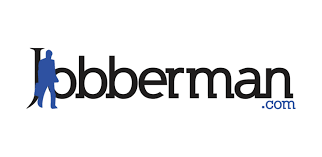The alarming disparity in employment access for marginalized groups in Nigeria was brought to light in a recent Jobberman report, revealing that nearly 90% of Nigerian employers systematically exclude these vulnerable populations from their hiring processes. This exclusionary practice disproportionately affects women in disadvantaged communities, persons with disabilities (PWDs), and internally displaced persons (IDPs), effectively barring them from participating fully in the country’s evolving digital employment landscape. The report’s findings were presented at a roundtable discussion in Abuja, co-hosted by Jobberman and the Mastercard Foundation, which focused on technology and employment inclusion within marginalized contexts. The event served as a platform for stakeholders from various sectors, including government, private businesses, civil society organizations, digital platforms, and development agencies, to address this pressing issue.
Central to the discussion was the role of technology in either perpetuating or mitigating existing inequalities. Hilda Kabushenga, CEO of The African Talent Company, Jobberman’s parent company, emphasized the imperative of leveraging technology as a force for inclusion rather than exacerbating the digital divide. She stressed that the conversation transcended mere technological advancements and delved into the core principles of equity, access, and opportunity. Echoing this sentiment, Temi Dalley, Group Executive of Human Capital & Corporate Services at Sterling Financial Holdings, highlighted the transformative power of technology in reshaping employment landscapes. However, she cautioned that this potential could only be realized through intentional efforts to bridge the digital gap and ensure equitable access for marginalized communities. Dalley urged a shift in perspective, advocating for technology to be viewed not just as a tool but as a catalyst for creating a level playing field. Collaborative action between government bodies, private enterprises, and NGOs was deemed crucial for investing in digital infrastructure and skills development, with inclusion being recognized not as charity but as a fundamental driver of innovation and sustainable economic growth.
The imperative of building inclusive digital ecosystems that guarantee equitable access to employment and economic empowerment for all Nigerians was underscored by Abba Isa, Senior Special Assistant to the President on Special Needs and Equal Opportunities. Represented by his Director of Media and Communications, Lanre Oloyede, Isa commended the roundtable initiative and urged participants to prioritize pragmatic solutions, particularly those employing technology to bridge the digital divide and expand opportunities for PWDs, IDPs, and women in underserved areas. A key recommendation was the amendment of the National Disability Act to incorporate private sector quotas, ensuring the inclusion of qualified individuals with disabilities in the national workforce. This emphasis on legislative action highlights the need for systemic change to address deep-rooted biases and structural barriers that limit opportunities for marginalized groups.
Dr. Kafui Mills-Odoi, Head of Inclusion at Mastercard Foundation Nigeria, reinforced the critical importance of inclusion and access for marginalized groups, particularly women, youth, and PWDs. She emphasized the need for technology to dismantle barriers to dignified work, ensuring that advancements benefit all segments of society. Mills-Odoi advocated for a human-centered approach to technological development, incorporating innovative design and systemic changes to create accessible and equitable pathways, especially for young people in underserved communities. This focus on user-centric design highlights the need for solutions that are tailored to the specific needs and challenges faced by marginalized groups, rather than a one-size-fits-all approach. Rosy Fynn, Country Director for Mastercard Foundation Nigeria, reiterated the Foundation’s unwavering commitment to inclusive economic growth, emphasizing that inclusion should be the core agenda in economic development, echoing the sentiments expressed by other speakers. She emphasized the Foundation’s mission to empower 30 million young Africans, particularly women, with access to dignified and fulfilling work by 2030, positioning inclusion as a central pillar rather than a peripheral concern.
The Jobberman report sheds light on the specific challenges faced by marginalized groups in accessing employment. Key barriers identified include skills assessment issues and transportation difficulties, which often lead to the exclusion of PWDs and IDPs during recruitment processes. The report reveals a disconcerting lack of intentional efforts towards inclusion within the formal sector, with a staggering 9 out of 10 employers not actively seeking to hire individuals from marginalized groups, particularly PWDs. This lack of proactive engagement perpetuates the cycle of exclusion and reinforces existing societal biases. Despite these obstacles, the report acknowledges the resilience of these marginalized communities, with a significant proportion of PWDs (55%) and women in IDP groups (44%) securing employment, primarily through self-employment in sectors such as creative media and agriculture. This underscores the inherent entrepreneurial spirit and resourcefulness within these communities, highlighting their determination to overcome systemic barriers.
Furthermore, the report identifies significant gaps in education and training opportunities. The vast majority of Nigerian schools (85%) lack the necessary infrastructure and resources to accommodate PWDs, and a substantial proportion of PWDs (63%) lack the skills required for gainful employment. This skills mismatch further exacerbates their challenges in accessing suitable job opportunities. While the report paints a bleak picture of widespread exclusion, it also points towards emerging opportunities. The rise of digital tools and remote work is gradually creating new avenues for marginalized groups to participate in the workforce. The report advocates for subsidized inclusivity training programs and public recognition of inclusive employers to encourage a shift in mindset and promote wider adoption of inclusive hiring practices within the private sector. The roundtable discussions, with a focus on specific vulnerable groups, yielded valuable insights for shaping policy and advocacy initiatives aimed at improving employment access for marginalized populations in Nigeria. The report serves as a crucial call to action, urging stakeholders across all sectors to work collaboratively towards creating a more inclusive and equitable employment landscape in Nigeria, ensuring that no one is left behind in the pursuit of economic opportunity and dignity.














